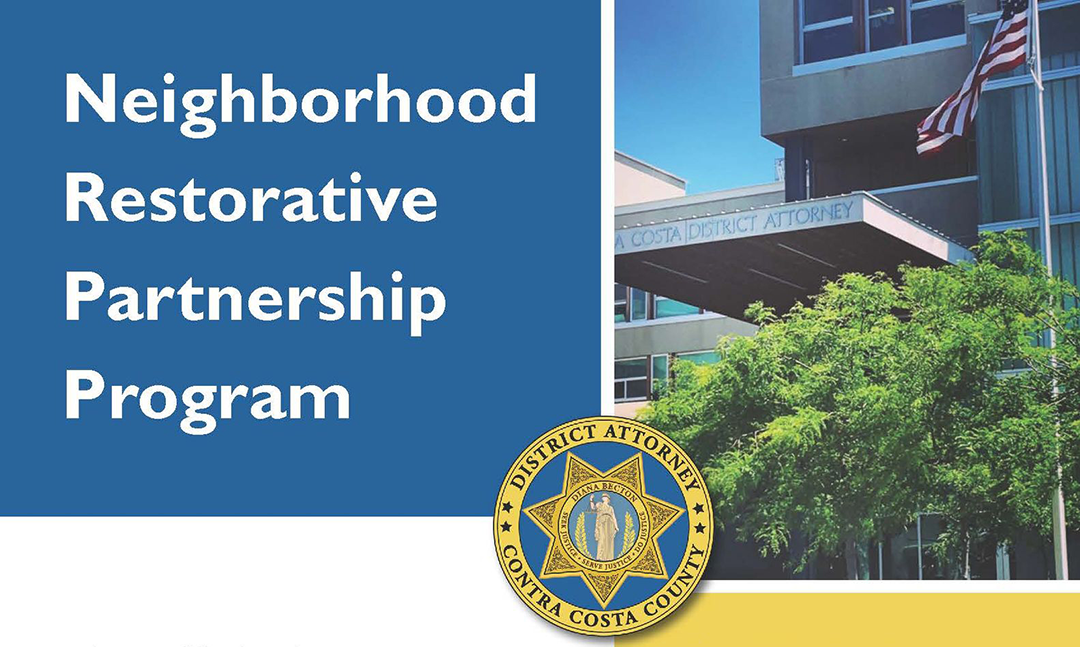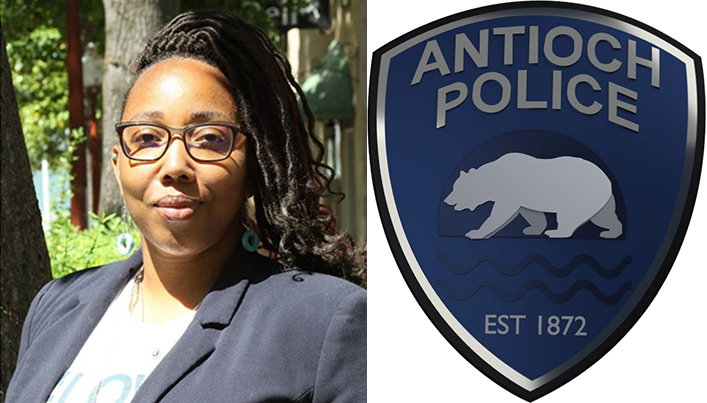
Contra Costa District Attorney Becton and Sheriff David Livingston. Official county website photos.
Send letter to County Supervisors claiming, “Sheriff’s unwavering support for deputy who killed two people raises serious questions about his commitment to safety and accountability”
Instead of six years in prison for Andrew Hall “official Probation Department report recommended probation.”
“Contra Costa is not San Francisco or Los Angeles” – Sheriff Livingston
By Allen D. Payton
During campaign season, as both are facing re-election, an email was sent by Contra Costa County Sheriff David Livingston to his department staff on Friday, March 4, 2022, criticizing District Attorney Diana Becton and the judge for sentencing of former Deputy Andrew Hall to six years in prison for the shooting death of Laudemer Arboleda in 2018. (See related article)
In response, Becton and three other DA’s in the state who formed the Prosecutors Alliance of California are asking the County Supervisors “to increase external oversight of departmental misconduct” and for an audit of the sheriff’s department’s disciplinary practices. Formed in 2020, the Alliance is made up of four members, including the DA’s of San Francisco and L.A. Counties who are both currently facing possible recalls, and funded by Tides Advocacy, a social justice and welfare organization.
Sheriff Livingston’s email:
“Today is a sad day for the Sheriff’s Office, the community we serve, and law enforcement in general. This morning superior court judge Terri Mockler sentenced Andrew Hall to six years in state prison. This is an unusually long sentence by any measure especially since the official Probation Department report recommended probation. Since this is a felony conviction, California law requires that he no longer serve as a peace officer. We are compelled to give him a reluctant farewell.
During his years of service, he served with honor and distinction. He handled thousands of calls for service, as many of you have, and was well received by the citizens of our county. After an extensive internal investigation, he was found to be within departmental policy when he was forced to use deadly force to protect himself and others on that fateful day. I was proud to support him publicly and privately after the events of November 3, 2018, and I support him today.
For our district attorney to charge a deputy sheriff, or any peace officer, for a crime based on a split-second tactical decision is abhorrent. It is even more abhorrent for that same district attorney to later repost photos on her reelection campaign social media that show her smiling and proclaiming that she “charged the officer.”
Despite these odd times, please remember I appreciate the work all of you do; I respect your sacrifice and commitment to the community we serve, and most importantly, I have your back. I may not be able to impact the decisions of other elected officials, or the courts, but I definitely can impact what happens in our organization. Do your job with honor, follow department policies, and obey the law. If you do that, I will proudly stand with you – regardless of your job assignment, your rank, or your duties. Never forget that and never doubt that.
I’m proud to be your Sheriff, and I thank you all.
David Livingston
Sheriff-Coroner”
Prosecutors Alliance Chides Livingston, Asks Supervisors for Oversight, Audit
On Monday, March 14, in a letter to the Contra Costa County Board of Supervisors, the Prosecutors Alliance of California asked for an audit of the disciplinary practices in Sheriff Livingston’s department and to increase external oversight of departmental misconduct. Recent remarks made by Sheriff David Livingston suggest he believes his deputies are above the law, raising serious concerns over the legitimacy of an Internal Affairs investigation into former Deputy Andrew Hall and how the Sheriff is disciplining officers who abuse their authority.
“Sheriff Livingston’s comments are abhorrent and indicate his belief that deputies who kill are above the law,” said Cristine Soto DeBerry, Founder and Executive Director of the Prosecutors Alliance of California. “Police have wide latitude to use force, but when they unnecessarily kill they must be held accountable just like anyone else in our community. When we do not hold police accountable, people do not trust the legal system to protect them. That makes the job of policing more difficult and dangerous, and it makes it far less likely that crimes will be reported. That, in turn, poses a threat to everyone’s safety.
“District Attorney Diana Becton’s willingness to hold law enforcement accountable is the only check on an agency whose leader would otherwise grant his deputies unbridled power to kill with impunity. Sheriff Livingston took an oath to seek equal justice under the law and his remarks are an affront to that sworn commitment. These are not the words of a law enforcement leader, they’re the words of a man that believes accountability does not extend to police.”
Last week, a judge sentenced Deputy Andrew Hall to state prison after a jury convicted him for the 2018 shooting and killing of Laudemer Arboleda, an unarmed man having a mental health episode. This was not Hall’s only killing – he shot and killed Tyrell Wilson in 2021. Contra Costa County has paid $9.4 million to settle claims regarding former Sheriff’s deputy Andrew Hall. The County agreed to a $4.9 million settlement with Arboleda’s family last October in addition to a $4.5 million settlement with Tryell Wilson’s family.
In response to the verdict, Sheriff Livinston sent a department wide letter saying former Sheriff’s Deputy Andrew Hall served with “honor and distinction,” that Hall “was forced to use deadly force to protect himself that day,” and noted that an internal affairs investigation had cleared Hall. Livingston called DA Becton’s decision to charge former Deputy Hall “abhorrent,” and told his deputies, “I have your back.”
In an email to the Board of Supervisors today, Cristine DeBerry sounded the alarm, noting that, “the fact that [Internal Affairs] cleared former Deputy Hall is concerning. If Department policy allows Sheriff’s Deputies to use force in contravention of the law, that would set up a situation wherein Deputies are being trained to use force in a manner that conflicts with criminal law. That presents serious issues for law enforcement officers, public safety, and county liability. Alternatively, if the Sheriff is clearing deputies in cases where their use of force was criminal, that too raises serious questions about the Sheriff’s commitment to public safety and accountability.”
The Board of Supervisors can help restore trust by increasing oversight over the Sheriff’s Department, and by auditing the department’s disciplinary policies. These are critical steps to help the public understand the scope of law enforcement misconduct and to develop policies to increase accountability.
“DA Becton courageously charged Officer Hall with the death of Mr. Arboleda, a jury convicted him, and a judge sentenced him to prison,” said Cristine DeBerry. “Sheriff Livingston should accept the jury’s verdict and look at ways to reduce the use of unnecessary force by his deputies rather than question the prosecutor’s decision to bring charges and defiantly proclaim to ‘have the back’ of officers where a jury has determined the force to be criminal.”
A question was sent Thursday evening to the Alliance’s media contact asking if they had received any response, yet from the Board of Supervisors.
Livingston Responds to Alliance Letter
“The so-called ‘Prosecutors Alliance’ committee is made up of only four of the 58 DAs in the state,” Livingston responded. “Contra Costa is not San Francisco or Los Angeles where two of their far-leftwing founding members serve. Instead of playing politics here, they should do their job and prosecute offenders and start caring about crime victims for once.”
Both Livingston is facing one opponent in the June Primary Election, while Becton is facing two. If no candidate receives a majority of the vote, then the top two candidates will face off in the November General Election.
Please check back for any updates to this report.














 Contra Costa County
Contra Costa County 
 On Monday, February 14, the June 7, 2022, Candidate Filing Period will begin, and nomination papers will be available for candidates running for Statewide Constitutional offices, County offices, Superior Court judges, United States Senator, United States Representative in Congress and Member of the State Assembly. The nomination period runs through 5:00 pm Friday, March 11, 2022. A list of offices currently up for election can be found here:
On Monday, February 14, the June 7, 2022, Candidate Filing Period will begin, and nomination papers will be available for candidates running for Statewide Constitutional offices, County offices, Superior Court judges, United States Senator, United States Representative in Congress and Member of the State Assembly. The nomination period runs through 5:00 pm Friday, March 11, 2022. A list of offices currently up for election can be found here: 















